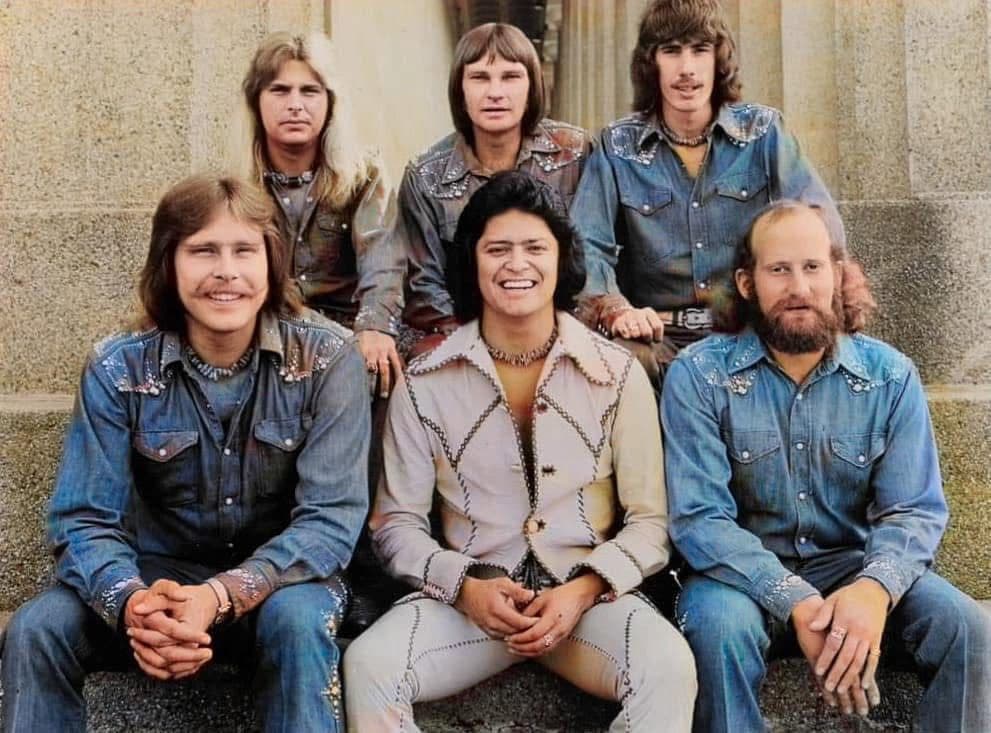
A Honky-Tonk Heart’s Enduring Lament
For anyone who’s ever wrestled with their demons, for anyone who’s ever loved and lost, Johnny Rodriguez’s 1974 hit, “Good Lord Knows I Tried,” resonates with a profound and timeless ache. Peaking at an impressive No. 1 on the Billboard Hot Country Singles chart, this song wasn’t just another entry in the country music lexicon; it was a candid, raw confession from a soul laid bare. Released from his album, also titled Good Lord Knows I Tried, it became a cornerstone of his early career, cementing his status as a relatable voice for the common man and woman struggling through life’s inevitable heartbreaks and missteps.
The story behind “Good Lord Knows I Tried” is as authentic as the dusty roads and neon signs that populated the country music landscape of the 1970s. Johnny Rodriguez, a charismatic and talented performer, had a knack for weaving narratives that felt deeply personal yet universally understood. At the time of its release, he was riding a wave of success, having already scored multiple chart-toppers. Yet, beneath the rising star facade, there was a palpable sense of humility and a recognition of human frailty, themes that would often surface in his music. The song itself, penned by the masterful songwriting duo of Glenn Sutton and Arthur Kent, perfectly captured the essence of a man looking back on a relationship, not with anger or bitterness, but with a weary acceptance of his own shortcomings and the inevitable nature of love’s decline. It speaks to the universal experience of striving for something, putting in the effort, and still falling short. It’s about that quiet moment of reflection when you realize that despite your best intentions, some things just aren’t meant to be, and the only solace you can find is in the knowledge that, indeed, you tried.
The meaning of “Good Lord Knows I Tried” delves deep into the often-unspoken sorrow of a love that has run its course. It’s a song about resignation, not defeat. The narrator isn’t railing against fate or blaming a former lover; instead, he’s acknowledging his own contributions to the relationship’s demise, or perhaps, simply recognizing the natural ebb and flow of human connection. The phrase “Good Lord knows I tried” isn’t a plea for pity, but a statement of exhausted honesty. It speaks to the countless late-night arguments, the unfulfilled promises, the silent distances that grow between two people. For older listeners, it evokes memories of past loves, of roads not taken, and the quiet dignity of admitting when enough is enough. It’s a testament to the resilience of the human spirit, the ability to acknowledge pain without succumbing to despair, and the bittersweet comfort of knowing you gave it your all.
Listening to Johnny Rodriguez’s smooth, yet undeniably sorrowful, delivery on “Good Lord Knows I Tried” transports you back to a simpler time, when country music spoke directly to the heart, unburdened by excessive production or commercial polish. His voice, with its gentle vibrato and a touch of melancholy, perfectly embodies the weary soul of the narrator. You can almost picture him, sitting alone, perhaps with a drink in hand, reflecting on a love that once burned bright but has now faded to embers. The fiddle and steel guitar weep alongside him, accentuating the longing and the quiet acceptance of what is. It’s a song that, much like a faded photograph, holds a lifetime of memories within its notes. It reminds us that even in loss, there can be a certain grace, a dignity in acknowledging our limitations, and a quiet strength in simply saying, “I tried.” And sometimes, in the grand tapestry of life and love, that’s all we can truly ask of ourselves.